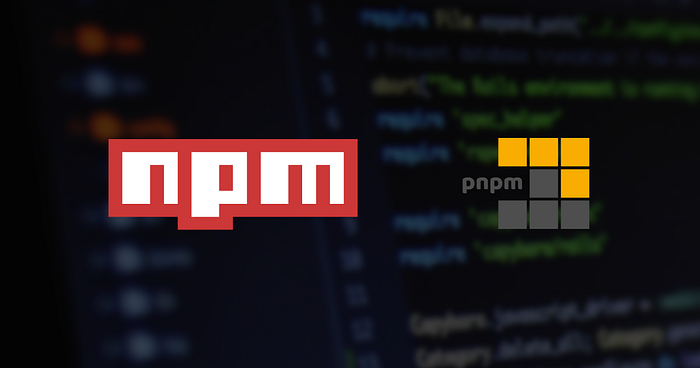Member-only story
NPM vs PNPM: A Detailed Comparison of Two Popular Package Managers

NPM (short for Node Package Manager) and PNPM (short for Performant Node Package Manager) are two popular package managers for JavaScript. They are both used to install, update, and manage packages (i.e., libraries and utilities) for Node.js applications. In this blog post, we will compare NPM and PNPM in terms of their performance, functionality, and overall user experience.
Performance:
One of the main differences between NPM and PNPM is their performance. PNPM is generally faster than NPM, especially when it comes to installing and managing large numbers of packages. This is because PNPM uses a “store” approach, where all packages are stored in a central location, rather than in the node_modules folder of each individual project. This means that PNPM only needs to download a package once, no matter how many projects use it, which reduces the overall time required for package installation and management. In contrast, NPM stores each package in the node_modules folder of each project, which can lead to slower performance when dealing with large numbers of packages.
In PNPM, packages are stored in a central location called the “store”. The store is a directory on the local filesystem where all of the packages that are installed using PNPM are stored. By default, the store is…
